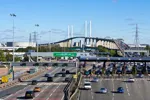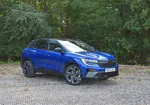Budget cuts
Damian James is in a difficult position: many of the obvious decisions to cut costs and save money have already been made.
However, further cuts are on the way – he will know by the end of the year how much will be shaved off his budget, although he will not know the full details until later in 2011 – and so must continue to save the authority money.
The home to school service is statutory but many of the other transport services are not and so will be reviewed.
This is where the council will rely on James’ experience to find further cost savings while protecting services.
“A lot of my work is in a strategy role, where the next areas are where we can save money,” he explains.
“But there are always opportunities to make savings – every time you acquire a vehicle there is an opportunity to save money.”
Grey fleet management
Damian James is exploring ways to manage the authority’s 1,000 grey fleet drivers, 300 of whom are considered essential users and so benefit from an additional £1,000 annual payment on top of their mileage expenses.
The grey fleet has remained one of his preoccupations, as it has been for the past two years.
James recently acquired three pool cars – Ford Fiesta diesels with emissions of 110g/km – to ensure grey fleet users had access to an alternative – and cleaner – car.
He also set up short-term vehicle hire. It’s all part of the focus on costs and efficiency, he says.
The grey fleet focus has not ended and James is now exploring further options, which include investigating whether salary sacrifice is a viable option.
In addition, James has introduced a driving at work policy, a driver’s handbook and banned hands-free phone kits from the council’s vehicles.
Driving licence checks have also been introduced for fleet drivers and for essential grey fleet drivers.
Diesel v petrol
Bracknell Forest Borough Council’s diesel fleet has brought its own problem – one that is set to get worse next year when all new diesels become Euro 5 compliant.
“Euro 5 is going to cause terrible problems,” says James.
“It may mean we move over to petrol – this is a real possibility.”
The problem is diesel particulate filters (DPF), which clean the particulate emissions from the diesel engine exhaust system.
These need to be run for a minimum time and distance to work effectively and not become damaged and ultimately fail.
However, many of the council’s commercial vehicles and minibuses do short trips – often below five miles – a couple of times a day and then sit idle. James has to have the vehicles driven on to the motorway on a needless journey, wasting time and fuel, just to prevent problems.
All of James’ fleet is diesel, although not all have DPFs fitted.
Some of the minibuses are not available in petrol and this is going to cause a problem, not just for Bracknell but for all authorities that require vehicles to do short daily journeys.
As he asks, how many new vans and minibuses can you find that are petrol powered?
“This is going to be a huge problem for the public sector. Either the manufacturers improve DPFs or we may have to go to petrol even though diesel engines suit commercial vehicles far better,” he says.
















Login to comment
Comments
No comments have been made yet.